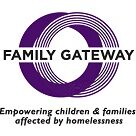May 15, 2020 – The Dallas Morning News – Obed Manuel
Terry Thompson was out of work, and if he didn’t act fast, he and his 10-year-old son, Tory, would be homeless.
It was mid-March and Thompson, 49, who worked as a carpet cleaner, saw his income dry up as the restaurants he served closed their dining rooms to comply with coronavirus public health orders.
He soon would be unable to pay the $270 a week for the Dallas hotel room he and his son had been living in for almost a year.
It seemed at first as if hotel management would be flexible given the pandemic. But a week after he told them he couldn’t afford the room, their “whole attitude changed,” Thompson said.
Without homes to call their own, families like Thompson’s in Dallas have borne the brunt of the coronavirus’s financial impact especially hard. As the economy closed, some lost jobs and, in turn, their ability to pay for shelter.
While some of these families may get help from the city in the form of a proposed $6.8 million rapid rehousing program, the demand is nothing new and may increase over the coming weeks, advocates say. The goal is to help newly homeless families find housing and temporarily pay rent.
Rapid rehousing is like a “jump-start” for families who can work, said Ellen Magnis, president and CEO of Family Gateway, a nonprofit shelter that helps families find housing through various programs.
The nonprofit vets applicants eligible for rapid rehousing and — using city, state and federal dollars — helps them pay for security deposits, rent, bills and move-in costs for a year, Magnis said.
The goal is to wean families off the financial support during that year by helping them find better jobs and providing a case manager who advises them, Magnis said.
Those initial costs, like security deposits and applications fees, often are a barrier for families that can keep them from finding a home, she said.
Thompson and his son were living in an apartment last year, but after he was laid off from a previous job, he was unable to pay rent and was forced to move out. Then his car broke down, adding to his financial woes.
“It was like bad dominoes falling on me,” Thompson said. “It takes time to get back on your feet and get yourself together.”
Thompson couldn’t save up enough for a security deposit at another apartment, so he found the only shelter he could: a hotel room. But paying $270 a week for the room “was killing me,” Thompson said.
So when his employer told him in March that the carpet-cleaning business would be temporarily shut down, Thompson turned to Family Gateway. The Dallas nonprofit placed him in a hotel and connected him with local partner nonprofit Housing Crisis Center.
Family Gateway saw an increase in calls for aid in March and April from families and individuals who could no longer pay for hotel rooms or were kicked out by family members scared of having an overcrowded home during a public health crisis, Magnis said.
“Life is already hard on these families who are living at or below poverty level, and that day-to-day existence is traumatic,” Magnis said.
In 2019, Family Gateway received about 1,500 calls from families that had shelter like a hotel or were living with another family. The organization helped dozens find a home through rapid rehousing.
About 99% of those whom Family Gateway served last year remain housed and more than half saw an increase in income, according to the nonprofit’s internal data.
And Dallas may soon offer more rapid rehousing aid for families living on the brink of homelessness.
Dallas’ Office of Homeless Solutions staffers are proposing a $6.8 million rapid rehousing program with a goal of providing shelter for 300 people by October.
About 400 individuals whom the city is housing in hotels and the makeshift homeless shelter at the Kay Bailey Hutchison Convention Center would be the first priority, though.
The city has consistently offered shelter to more than 300 people daily at the convention center. More than 100 are currently staying in hotel rooms provided by the city in the Love Field area.
Initial funding would come from the city and include some federal money it had available.
The plan is to house individuals who had been relocated to hotel rooms due to social distancing requirements at overnight shelters, said Kevin Oden, interim director of the city’s Office of Homeless Solutions.
“The intent of this program is to have a model that we are able to successfully implement and use going forward to make substantial gains in our efforts” to reduce homelessness, Oden added.
The Office of Homeless Solutions is currently drafting a request for proposals from service providers, and the plan could come up for a City Council vote by June 10, according to a city memo.
Thompson may find shelter before then as he returned to work last Monday, a few days after Texas Gov. Greg Abbott allowed restaurants to reopen in a limited capacity.
Thompson is also on the hunt for an apartment. He applied for a two-bedroom in Oak Cliff a few days ago.
And his son Tory, excited at the prospect of having his own room, couldn’t be more hopeful.
“He said he wants the master bedroom,” Thompson said of his son and laughed. “I told him he’s gonna have to work for that master bedroom. That’s what life is. Always gotta work for it.”
Click here to view full story.
